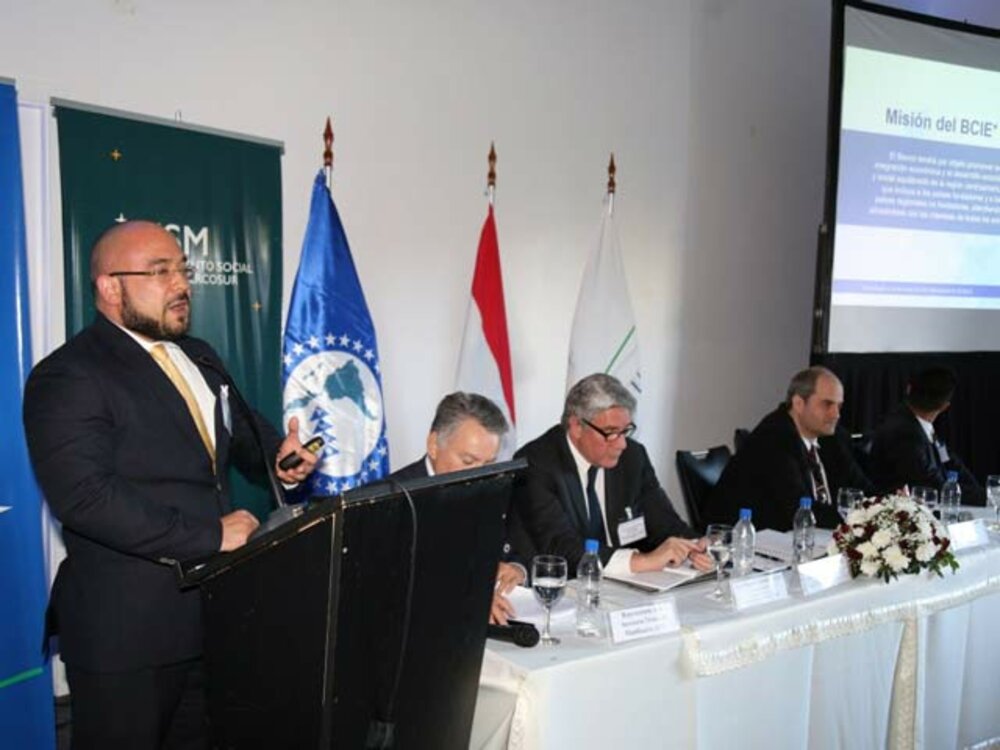CABEI presents key program for reducing poverty

The recently approved initiative is considered the first tangible regional program that uses multidimensional poverty as a criterion for the selection of operations.
Asunción, June 4, 2019.- The Central American Bank for Economic Integration (CABEI) presented the Program for the Reduction of Poverty and Economic and Social Exclusion (PRPEES) at the "Technical Workshop on Progress in Public Policies for the Reduction of Multidimensional Poverty in Latin America and the Caribbean," which was held in Asunción, Paraguay.
Before experts from international organizations and academia linked to the study of public policies and international cooperation, CABEI Strategic Alliances Analyst, Carlos Gallegos, explained that the program will be financed with resources from CABEI for up to US$569.1 million in approvals and with resources from external financing sources in order to increase the availability of resources. The financial conditions applicable to the PRPEES will be concessional up to 35% in the case of the resources provided by CABEI.
The purpose of PRPEES is to improve the quality of life of the region's inhabitants through the financing of operations to meet the investment needs of the poorest and most excluded communities in order to contribute to the region's balanced development.
The program is aimed at the CABEI member countries: Guatemala, El Salvador, Honduras, Nicaragua, Costa Rica, Belize, Panama and the Dominican Republic. It covers such fields as education, housing, health, employment and social protection.
The workshop was sponsored by the Permanent Secretariat of the Latin American and Caribbean Economic System with the support of the Social Institute of Mercosur, Mercosur, Paraguay's Social Cabinet and Paraguay's Ministry of Social Development.

CABEI in the Central American region
In 2018, US$2.44 billion in resources were approved for development interventions, which were distributed in the Bank's six focus areas; all with an I-CABEI impact higher than required. Likewise, the approvals fall under the framework of the strategic axes of Social Development, Competitiveness and Regional Integration with US$1.23 billion, US$1.03 billion and US$176.2 million, respectively.
The CABEI financing approved during this period is expected to create approximately 70 thousand jobs.







![[Translate to English:] [Translate to English:]](/fileadmin/_processed_/e/3/csm_WhatsApp_Image_2024-04-18_at_2.12.23_PM__2__590ef43ade.jpeg)
